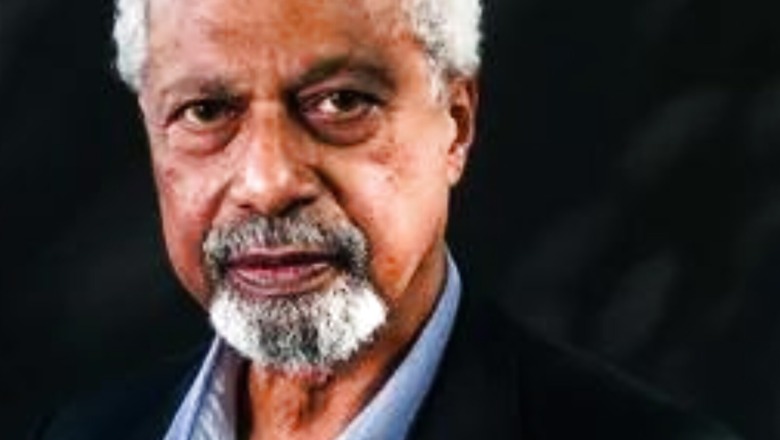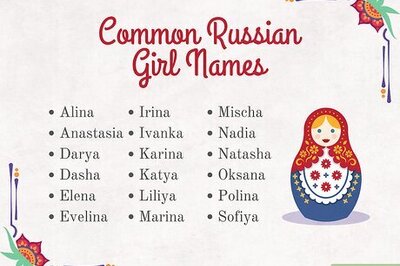
views
Abdulrazak Gurnah was presented with the Nobel Prize in Literature back in 2021 “for his uncompromising and compassionate penetration of the effects of colonialism and the fate of the refugee in the gulf between cultures and continents." His books, more than often deal with issues of memory, identity, displacement and how all of them are encrusted by the very history of colonialism- which he describes as “the great machinery of conquest and empire."
His ten critically acclaimed books, including ‘Afterlives’ and ‘By The Sea’ have deeply impacted the audience, his words have crushed the hearts of the readers and yet have given them ounces of hope. In an exclusive chat with NW18, he talks about the significance of memories, home, his journey and how he has been able to shape his experiences into words.
Excerpts From The Interview
- Memories play an intricate role in your works and more than often your character seems to be holding on to them, whether it’s a happy memory or a sad one, whether it’s the memory of the place, or of a person. You were a young adult of 18 when you had to leave Zanzibar. What is the memory that you have of the place, growing up?
Memories you cannot pick and choose. You cannot say I will remember this, but I won’t remember that, they are all there just nagging away, I guess you can suppress some memories, but even then they don’t go away. They are always there. So there was no problem in remembering, especially if the memory is one of something that has now been lost as it seemed at the time. Of course, it wasn’t quite but because I was ultimately able to return and go back and back and back several times.
Well, it was like growing up anywhere really sort of doing the things that you do, friends, school, family, playing games, whatever it didn’t seem until the catastrophe befell us in 1964, everything seemed to be alright. But that’s also to do with a certain age, you know, you don’t really see the stuff that’s looming over the horizon. What is currently going on you are just a little bit innocent on. So no, it was a good time as as I was happy as a young person.
2. You went into literature after quite a while of being in the UK. And I’ve often wondered to myself, I’ve read your works and wondered, did you always know what you wanted to write about? Did you know the kinds of stories that you wanted to tell and the sentences you wanted to write?
I knew what stories I wanted to tell, I just did not realise that I wanted to write them down. Not all of them. Of course, I’m talking about the early books, the early things that I started to write, but I know it’s up motion elsewhere that for me, writing started as a process of trying to understand the situation I was in, I was not writing in order to tell anybody else. So, that’s how it started to sort of try and work things out to try sometimes writing helps like that.
So quite obviously, when I started fictionalising what was my experience, I don’t mean by that my life. I mean, my experience what I was seeing around me, other people, what I remember about when I left the place. So in that respect, it wasn’t so much that I had stories to tell is that when you do that, or when I did that, I think, well, what does what does that mean? And what does that mean? What do I see there? What do I see there? And then the relationships and the combination between memory between what you know, between reflection, they all kind of work together to produce fiction of a certain kind. But then as time passes, then I suppose the perspective opens up, it isn’t just trying to understand your experience, but trying to understand other issues, other people’s experiences, and other phenomena. And as you get more confident, more sure, then you allow an idea to develop and grow in your mind. Sometimes that was several years before the time is right to explore it in writing. So it’s complicated, but it’s been after all these years, and you think back and I think yeah, it was good. But at the time, it did not always feel good, because some of it was sort of uncertain. Am I doing this right? Am I doing that right? But after, after decades of doing it, anything is behind you there are the books, then that feel things.
3. I am going to ask you a very technical question, if I may. We feel a lot of things and we live several experiences in life but it is not always very easy to choose the right words to describe them or the perfect sentences that can really tell the story. How do you do it every time?
Well, I hope I do it every time. I do it by simply trying to reflect how what I’m thinking or what I’m whatever. And it isn’t always straightforward. Of course, you write it, sometimes it takes ages, sometimes it flows very easily, then you read it again, and then you read it again, see, unlike you, you’re a journalist, I don’t have a deadline in that way. So it means I can wait and wait until I get it right. And work at it until I feel, yes, that I think is what I’m trying to get at. And I think that’s how writers work, you know, they don’t have to unless they’re there. Unless they wish to on this, they’re supposed to under some kind of commission pressure is I’ve never taken a commission, I just write until I’m ready. And I think a lot of writers do that. So I don’t think I don’t think there is some kind of magical process, I think it’s just patience that working away, and being able to hear whether a sentence is right. Whether the word is, is a reflection of what you have in mind, and you can’t always get it. Probably quite a lot of the time, you can’t get it. But you get as near as possible to that, to that idea, or the thought that you’re trying to express
You will be speaking at the Jaipur Literature Festival this year, what can the audience and enthusiasts expect from your segment?
Something calm and relaxing and cheerful.
Read all the Latest Lifestyle News here


















Comments
0 comment